
Blog
1303 posts
Billionaires Should Pay Taxes on Their Income Every Year Like the Rest of Us
September 13, 2022 • By Steve Wamhoff

The Inflation Reduction Act signed by President Biden last month will crack down on corporate tax dodgers and strengthen enforcement of tax laws already on the books, raising hundreds of billions of dollars to be spent on climate, health and other priorities. But these reforms will not directly raise taxes on even the wealthiest individuals. […]
State Rundown 9/7: Labor Day Week Provides Sobering Reminder of Steps Forward, Back
September 7, 2022 • By ITEP Staff

Though Labor Day has passed, advocates on the ground in states across the country are continuing to uphold the spirit of the labor movement...
Romney Child Tax Credit Plan Would Leave Millions of Children Worse Off and Raise Taxes for the Average Black Family
September 7, 2022 • By Steve Wamhoff
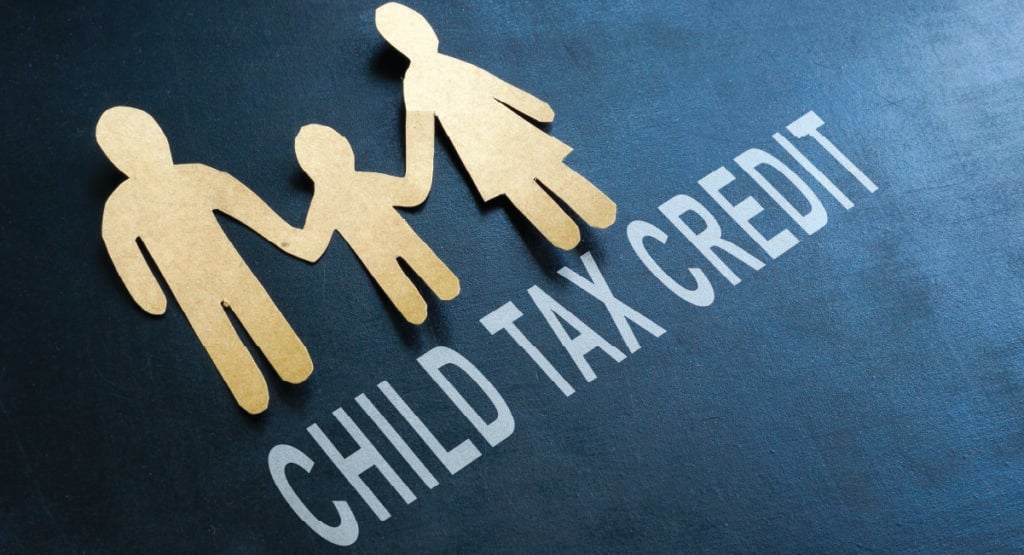
Sen. Romney’s plan would expand the Child Tax Credit and offset the costs by scaling back other tax benefits. All told, it would raise taxes on a fourth of all kids in the U.S. This includes about a fourth of the children among the poorest fifth of U.S. families.
Four Tax Policy Wins in the Inflation Reduction Act and Four More That Can Build on This Progress
August 22, 2022 • By Joe Hughes, Jon Whiten
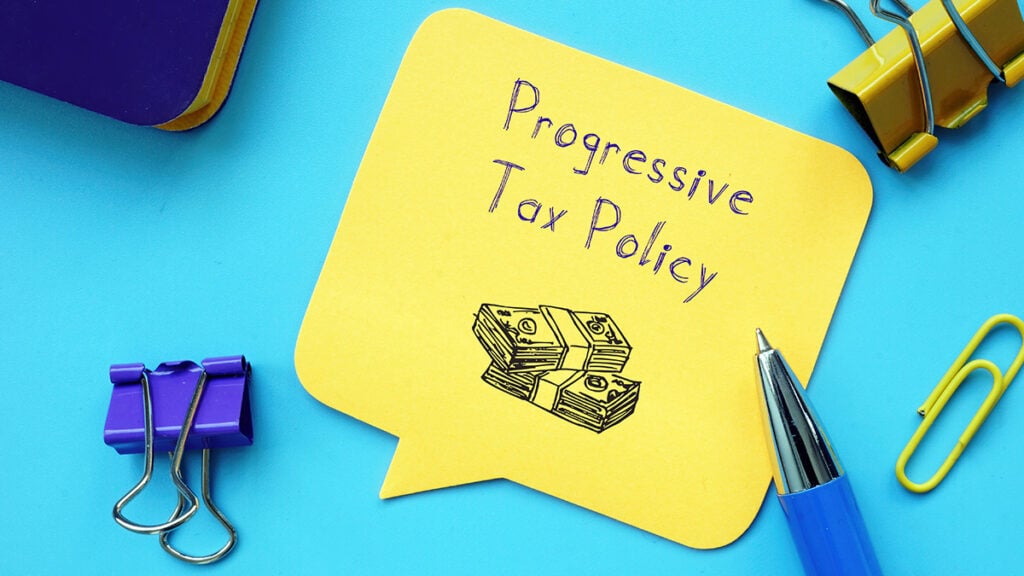
With four major tax policy provisions, the IRA takes a huge step toward a fairer tax code and a more equitable economy. But as always, there are more steps lawmakers should take to build on this progress.
Putting Cleveland and the Nation on a Path Toward Tax and Climate Justice
August 22, 2022 • By Amy Hanauer
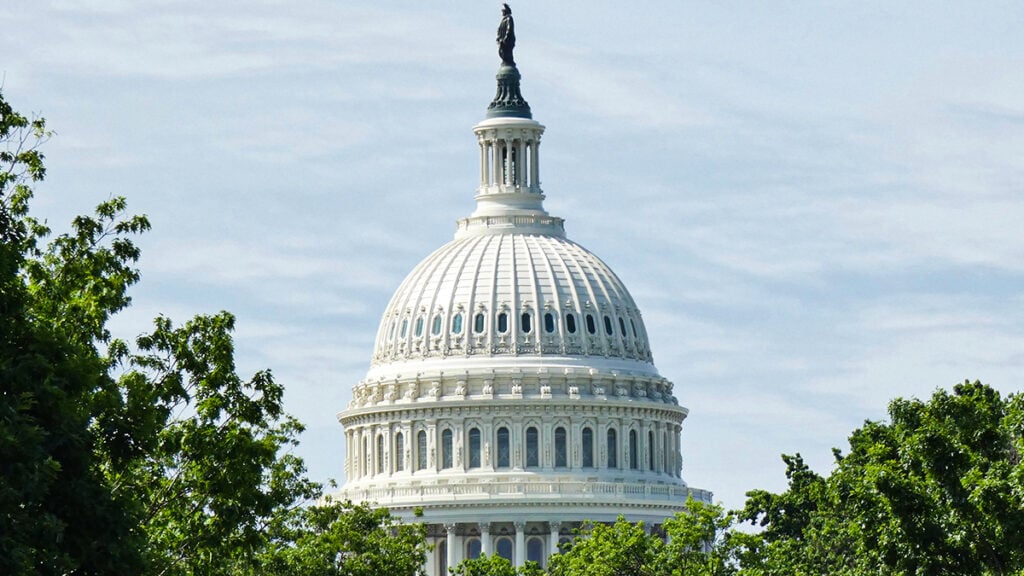
Editor’s note: This originally ran as an opinion piece in the Cleveland Plain Dealer. When I left Cleveland to work on federal tax policy after 20 years running Policy Matters Ohio, I knew Ohio would stay in my heart and fuel my work. Accustomed to an America that often ignores our toughest problems, I understood […]
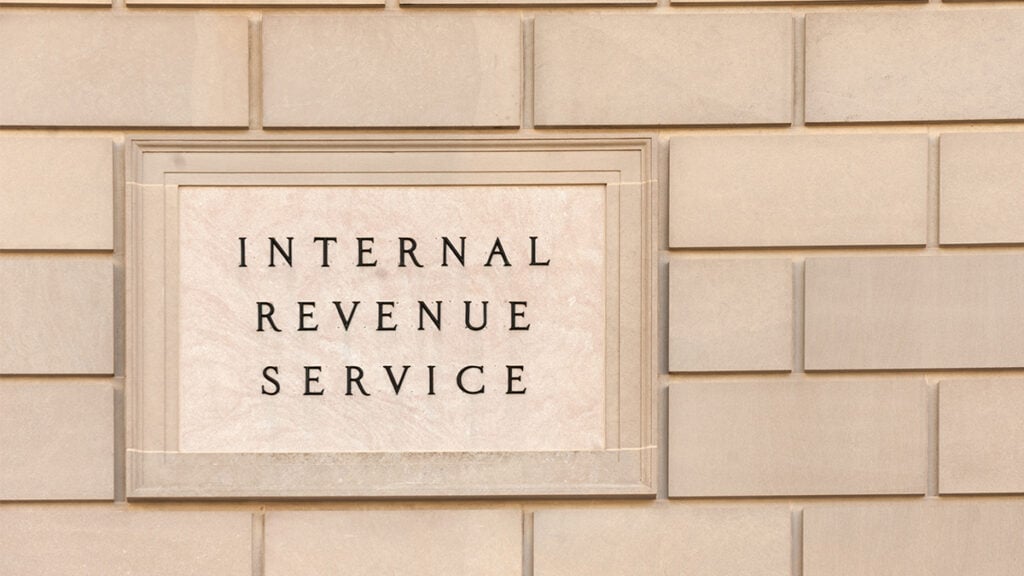
Editor’s note: This originally ran as an opinion piece in The Hill. Though the Inflation Reduction Act is enormously popular, some politicians and pundits are trying to generate hysteria about one feature: Funding for the IRS. All the false claims are distracting us from two important things: how necessary the funding increase is to reverse […]

Everyone loves a deal, so it’s no surprise why the appeal of the state sales tax holiday continues to persist. This year, 20 states will forgo more than $1 billion in combined revenue to enact a variety of sales tax holidays that—like most things that are too good to be true—will do little to provide meaningful benefits and instead undermine funding for public services.
Lawmakers Must Choose Between Funding the IRS or Protecting Wealthy Tax Cheaters
August 12, 2022 • By Steve Wamhoff

Grasping for some way to criticize the popular Inflation Reduction Act as it approaches final passage, Congressional Republicans have decided to attack its provisions that will reverse a decade of budget cuts to the IRS and instruct the agency to crack down on tax evasion by big corporations and individuals making more than $400,000. Of […]
State Rundown 8/10: States Still Talking Taxes as IRA Dominates Headlines
August 10, 2022 • By ITEP Staff

While federal tax policy has dominated the headlines with the Senate’s recent approval of the Inflation Reduction Act, lawmakers in statehouses across the country...
What Tax Provisions are in the Senate-Passed Inflation Reduction Act?
August 9, 2022 • By Steve Wamhoff
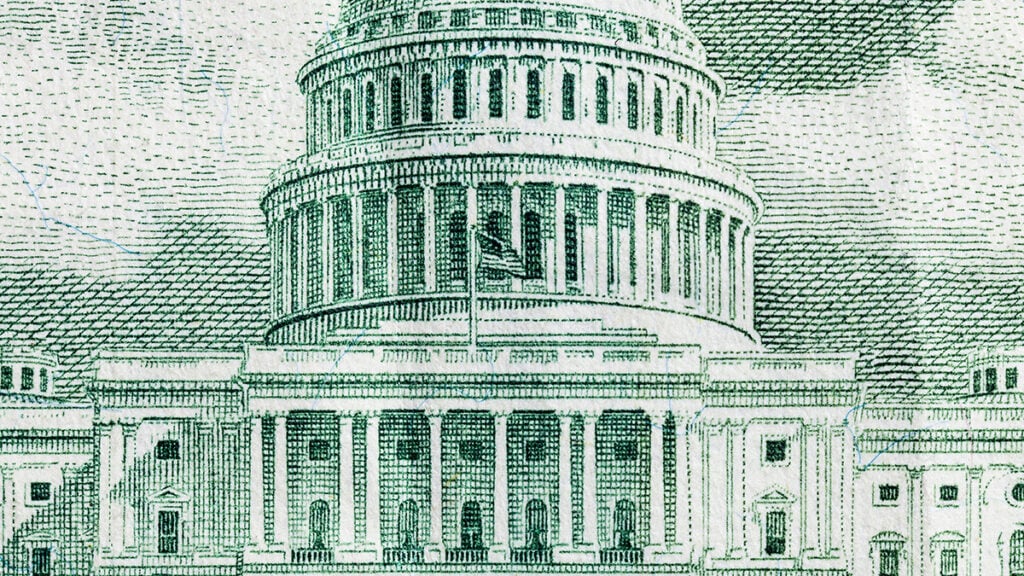
The Inflation Reduction Act approved by the Senate on Aug. 7 would raise more than $700 billion in new revenue over a decade by closing corporate tax loopholes, empowering the IRS to enforce the tax laws on the books, taxing stock buybacks, and extending a limitation on deductions for business losses. The IRA – if […]
They Might Really Do It: The Senate Is About to Reform Our Tax Code
August 5, 2022 • By Steve Wamhoff

For now, the Senate is poised to reverse cuts to the IRS enforcement against wealthy tax evaders for the first time in a decade, crack down on tax-dodging by huge corporations for the first time since 1986, and finally address the method increasingly used by corporations to transfer income to shareholders to avoid federal taxes. The multi-decade winning streak of corporate lobbyists and special interests who have practically written many of our tax laws in recent years is about to come to an end.
Corporations are Shifting Profits to Wealthy Investors Tax-Free—Stock Buyback Tax Would Change That
August 5, 2022 • By Joe Hughes

Senate Democrats have announced an agreement on the Inflation Reduction Act that, among other changes to a previous version of the bill, would apply a 1 percent tax on corporations repurchasing their own stock. This proposal was included in the House-passed Build Back Better Act last year and was estimated at that time to raise $124 billion over 10 years. This measure would ensure that income transferred from corporations to wealthy shareholders does not continue to escape taxation.
Corporate Minimum Tax Examples: Apple Would Likely Pay More, 3M Would Not
August 5, 2022 • By Matthew Gardner

Apple, one of the largest corporations in the United States despite manufacturing most of its physical products offshore, would likely pay the corporate minimum tax that is included in the Inflation Reduction Act that the Senate is debating this week. 3M, a manufacturer that has about 40 percent of its workforce in the United States, likely would not pay the corporate minimum tax if current trends in the company’s profits and taxes continue, because it is already paying above 15 percent of its profits in taxes.
Opponents of Inflation Reduction Act Call for Continued Tax Avoidance by Large Manufacturers
August 2, 2022 • By Steve Wamhoff

The biggest revenue-raising provision in the Inflation Reduction Act, the 15 percent minimum tax for corporations that have more than a billion dollars in profits, is under attack from members of Congress who argue that manufacturing companies should not be required to pay any minimum amount of tax. Sen. Mike Crapo, the top Republican on […]
Top Republican Tax-Writer Falsely Claims that Minimum Tax for Huge Corporations Is a Tax Hike on Middle-Class
August 2, 2022 • By Steve Wamhoff
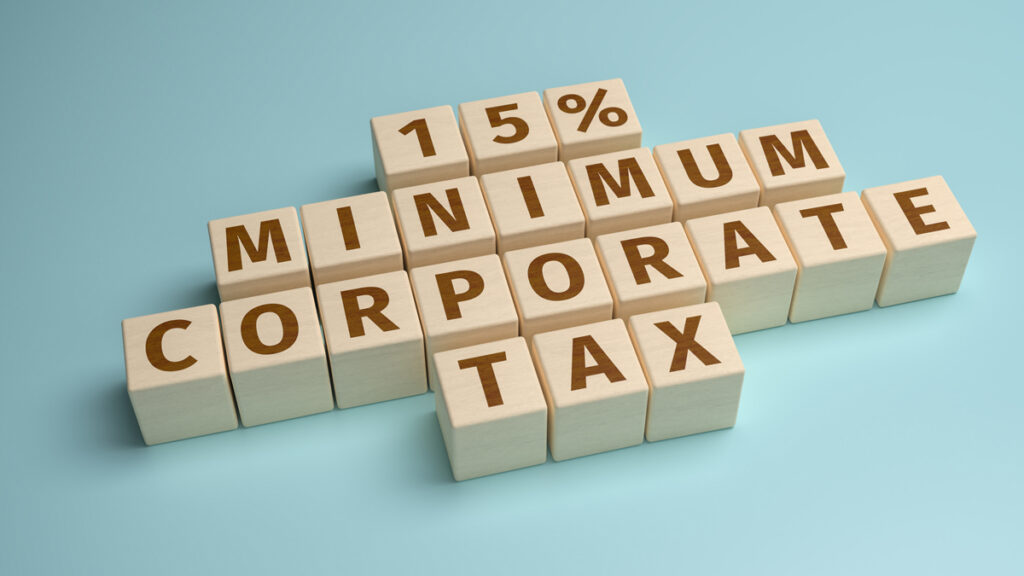
Opponents of requiring corporations to pay even a minimum amount of taxes hold an unpopular position. But Sen. Mike Crapo, the top Republican on the Senate Finance Committee and a leader of that opposition, is using a one-sided and incomplete analysis to claim that the corporate minimum tax would raise taxes on low- and middle-income people.
State Rundown 7/27: It’s (Sales Tax) Holiday Season, But Who’s Really Celebrating?
July 27, 2022 • By ITEP Staff

It’s the holiday season – well, the sales tax holiday season, that is. But after taking a closer look, you may notice that there is little to celebrate...
Legislative Momentum in 2022: New and Expanded Child Tax Credits and EITCs
July 22, 2022 • By Neva Butkus
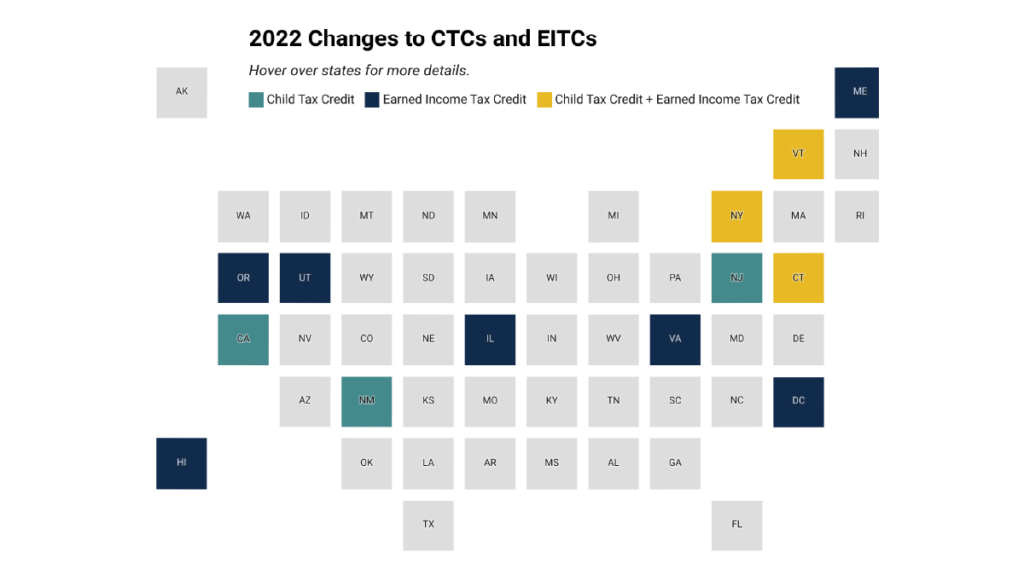
State legislatures across the country made investments in their future, centering children, families, and workers by enacting and expanding state Earned Income Tax Credits (EITCs), Child Tax Credits (CTCs), and other refundable credits this session. In total, seven states either expanded or created CTCs this session. Connecticut, New Mexico, New Jersey, Rhode Island and Vermont […]
Most States Used Surpluses to Reduce Taxes But Not in Sustainable or Progressive Ways
July 22, 2022 • By Kamolika Das

The average person on the street would have no idea that many states experienced unprecedented budget surpluses this year. Iowa, for instance, has the most structurally deficient bridges of any state with nearly 1 in 5 falling apart. The Iowa Board of Regents proposed a 4.25 percent tuition increase for all three state universities and […]
New ITEP Brief Shows How State Sales Tax Holidays Fail to Live Up to the Hype
July 20, 2022 • By Marco Guzman

Twenty states this year have decided to go so far as to forgo a combined $1 billion in vital tax revenue in favor of conveniently popular yet ultimately ineffective sales tax holidays. Whether it’s a state looking for a way to help families manage the rising cost of goods or to celebrate back-to-school shopping season, these policy options are poorly targeted and an inadequate use of state tax revenue that could be doing more to make childcare more affordable, health care more accessible and high-quality education available to everyone.
The Tax Legislation Debated in Congress Would Reduce Inflation and Help Americans Deal with Rising Costs
July 19, 2022 • By Steve Wamhoff

Opposing a fully paid-for spending bill because of inflation concerns does not make any sense. Opposing a deficit-reducing bill because of inflation is absurd.

From the Bay State to the Golden State, lawmakers across the nation are making deals and negotiating budgets with major tax implications...
No Reason to Water Down the Tax Reforms in the Build Back Better Act
June 30, 2022 • By Steve Wamhoff

There is no justification for recently reported efforts to scale back the tax reforms in the Build Back Better Act, a bill passed by the House of Representatives in November that would raise significant revenue and make our tax code more progressive by enacting widely popular proposals. (See ITEP’s report on the BBBA.) Of course, […]

Although the sun is shining and Independence Day is right around the corner, many state lawmakers are still indoors hammering out the details of future budgets or still hard at work passing laws...

With many state legislative sessions wrapped or wrapping up, we at ITEP want to take a moment to direct your attention south, and specifically, to the American South...
New ITEP Report Examines the Path to Equitable Tax Policy in the South
June 22, 2022 • By Kamolika Das

“From the inception of the emerging American nation, the South is a central battleground in the struggles for freedom, justice, and equality. It is the location of the most intense repression, exploitation, and reaction directed toward Africans Americans, as well as Native Americans and working people generally. At the same time the South is the […]
